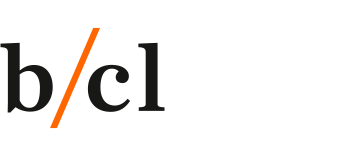Germany: Strict Rules for Search Engine Advertising by Online Marketplaces
The German Federal Supreme Court recently ruled that the use of only one trademark in search engine advertisements by Amazon was trademark infringing when the underlying link led to a list of offers that included not only products offered under that brand but also those of third parties (Decision of the Federal Supreme Court of 25 July 2019 in Case I ZR 29/18).
The claimant was the exclusive licensee of the German and EU trademark registrations for “ORTLIEB“ (in the following “Ortlieb“), known for its waterproof bicycle panniers. Ortlieb itself does not sell its products on Amazon.
Amazon used the trademark “ORTLIEB“ in advertisements on Google like the one shown below, which appeared when the terms “Ortlieb bicycle bag“ (“Ortlieb Fahrradtasche”) was entered in the Google search engine:
“Ortlieb bicycle bag – www.amazon.de/ortlieb+bicycle bag
3.5 assessment for amazon.de
Huge selection in sport articles
Free delivery possible”
The underlying link led to a list of results on Amazon which did not only contain offers of ORTLIEB-products, but also offers of competing products.
Ortlieb successfully brought an action before the Regional Court Munich requesting Amazon to cease and desist using “ORTLIEB” as only mark in online advertisements where the underlying link led to a list of products which were not all put on the marketplace under the trademark ORTLIEB with Ortlieb’s consent.
Following appeals by Amazon, this decision was confirmed by the Higher Regional Court in Munich and now by the Federal Supreme Court.
The Courts held that the use of the trademark “ORTLIEB” in the ads at issue was misleading. When clicking on the links contained in the ads, the public expected that it would be led to a list of results relating only to ORTLIEB products. This expectation was supported by the URL shown in the ad, which also contained the term “ORTLIEB”, and by the product indication (such as in the example here: www.amazon.de/ortlieb+fahrradtasche). The public therefore expected to be led to a list with exclusively these ORTLIEB products.
The situation was considered different from that of a customer entering a department store as a result of an advertisement for products of a specific brand. Due to the ad, the public does not expect to be led to the starting page of Amazon, but to a page where the very products to which the ad refers are available.
The case at issue was not considered comparable with earlier decisions on search engine advertising and addressing the use of a brand in conjunction with the advertisement as such, such as the CJEU decision in BergSpechte (Decision of 25 March 2010 in case C‑278/08). The question here concerned solely the use of the mark for generating a link to product offers for (also) competitors’ products.
In this context, the ORTLIEB mark was held not to be exhausted either, because use of the mark to lead to third-parties’ offers was held to impair the origin function. Amazon argued unsuccessfully that it was not the trademark’s function to protect its owner against competition. The Court clarified that it was not part of proper competition to link advertisements for certain branded products which are designed like the ones at issue here with lists containing products of competitors.
Interestingly, the outcome of this case differs from another case decided very recently between the same parties relating to the display of results following an enquiry for ORTLIEB products in the search field on Amazon’s Internet platform. Following a remittal from the Federal Supreme Court, the Higher Regional Court Munich found under those circumstances that it was not misleading when also third-party products where shown in the list of results after the trademark “ORTLIEB” had been entered in the search field of Amazon’s Internet platform (Decision of 6 June 2019 in Case 29 U 3500/15).
It’s a fine line and one may be inclined to wonder whether consumers indeed believe and expect what they are thought to believe and expect, but online retailers will have to try and live with this new case law – at least for Germany.
